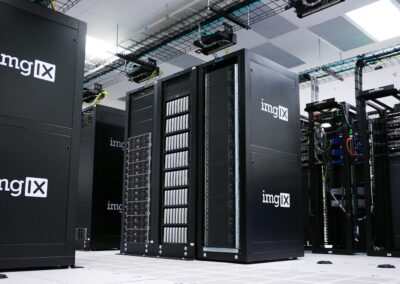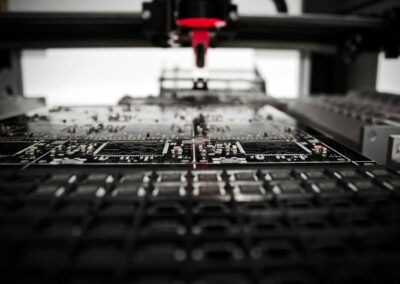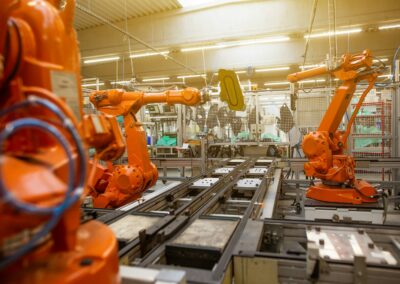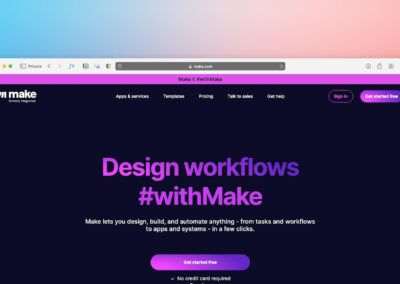Revolutionizing HR Processes with Cognitive Automation
Enhancing Recruitment Efficiency with Cognitive Automation
Cognitive automation in human resources is transforming the way businesses manage recruitment and onboarding processes. By leveraging advanced AI and machine learning technologies, cognitive automation streamlines these critical HR functions, offering significant advantages over traditional methods. For business executives and HR managers, this represents an opportunity to enhance efficiency and effectiveness in recruiting top talent.
One of the primary benefits of cognitive automation is its ability to accelerate the recruitment process. AI-driven systems can analyze large volumes of resumes and applications with remarkable speed and accuracy. This technology evaluates candidates based on predefined criteria, such as skills, experience, and qualifications, and provides actionable insights to HR teams. As a result, businesses can significantly reduce the time-to-hire and ensure that they are selecting candidates who best fit their organizational needs.
In markets like Saudi Arabia and the UAE, where the demand for skilled professionals is high, cognitive automation helps companies stay competitive by quickly identifying and engaging top talent. This technology not only speeds up recruitment but also improves the quality of hires, leading to better business outcomes and enhanced organizational performance.
Streamlining Onboarding Processes with AI
The onboarding process is another area where cognitive automation in human resources demonstrates its value. AI-powered solutions can facilitate a smoother and more efficient onboarding experience for new employees. Automation tools can handle tasks such as document management, training scheduling, and employee orientation, ensuring that new hires receive consistent and comprehensive onboarding.
Cognitive automation also personalizes the onboarding experience by tailoring it to the specific needs of each new employee. For example, AI systems can provide customized training modules based on the employee’s role, background, and learning preferences. This personalized approach helps new hires become productive more quickly and improves their overall job satisfaction.
Furthermore, cognitive automation enhances the scalability of onboarding processes. As businesses grow and expand, AI-driven solutions can easily accommodate increasing volumes of new hires without compromising the quality of the onboarding experience. This scalability is particularly valuable in rapidly evolving markets like Saudi Arabia and the UAE, where businesses need to adapt quickly to changing workforce demands.
Optimizing HR Operations for Enhanced Business Success
Implementing cognitive automation in human resources goes beyond just improving recruitment and onboarding. It has broader implications for overall HR operations and business success. By automating routine tasks, HR teams can focus on strategic initiatives that drive organizational growth and development.
Cognitive automation provides valuable data and insights that can inform HR strategies and decision-making. For instance, AI systems can analyze employee performance metrics, engagement levels, and turnover rates to identify trends and areas for improvement. This data-driven approach enables HR leaders to develop targeted strategies that enhance employee retention, boost morale, and support long-term business objectives.
In the context of Saudi Arabia and the UAE, where businesses are increasingly focusing on digital transformation, cognitive automation represents a key component of modern HR practices. By adopting these technologies, companies can not only improve their HR processes but also align themselves with broader trends in business innovation and efficiency.
Transforming HR with Cognitive Automation: Future Prospects
Future Trends in Cognitive Automation for HR
Looking ahead, the role of cognitive automation in human resources is expected to expand and evolve. Emerging technologies such as advanced predictive analytics and natural language processing will further enhance the capabilities of AI-driven HR solutions. These advancements will enable businesses to anticipate and address HR challenges with even greater precision and effectiveness.
For business leaders and HR professionals, staying informed about these trends and integrating cutting-edge technologies into their HR practices will be essential. By embracing future developments in cognitive automation, companies can maintain a competitive edge and continue to optimize their HR operations.
In Saudi Arabia and the UAE, where technological innovation is a key driver of business success, leveraging the latest advancements in cognitive automation will be crucial for staying ahead in the market. Companies that invest in these technologies will be better positioned to attract and retain top talent, streamline their HR processes, and achieve their strategic goals.
Conclusion
Cognitive automation in human resources offers a transformative approach to managing recruitment and onboarding processes. By leveraging AI and machine learning, businesses can enhance efficiency, improve the quality of hires, and provide a more personalized onboarding experience. As Saudi Arabia and the UAE continue to embrace digital innovation, cognitive automation will play a pivotal role in shaping the future of HR and supporting long-term business success.
—
#CognitiveAutomation #HRTechnology #RecruitmentEfficiency #OnboardingProcess #AIinHR #DigitalTransformation #SaudiArabia #UAE #Riyadh #Dubai #ExecutiveCoaching #Leadership































